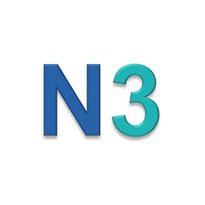N3 deal given two more years
- 20 December 2010

The Department of Health is set to extend its N3 contract with BT for another two years; but is starting to consult on what will replace it.
Paul Jones, the DH’s chief technology officer, told E-Health Insider that the contract extension to March 2013 has been agreed and will give NHS organisations better network capabilities for reduced cost. He said consultation was now needed on what comes next.
The NHS National Network (N3) contract was signed in February 2004 and runs to March 2011. The DH had two options for extending the contract, for two years or one year. “We’ve issued a letter of intent to take that two year extension period,” Jones said.
“One of the things about N3 is that to get a complete technology refresh, what we spend this year is less than we did last year,” he added.
Jones said that it was wrong to think of N3 as a circuit, describing it as a set of managed services with a management wrap. “Every connection at point of delivery is tendered,” he said.
One of the benefits of the technology refresh is to make it easier to use IP telephony over the N3 network. “One of the main benefits of IP telephony on N3 is the ability to get free calls with others on N3 connections,” Jones explained. “It’s a benefit that people don’t expect.”
Another benefit of the upgraded network is video conferencing. Jones said 130 organisations are using N3 video services. “This service will be available to 600 sites in the next two to five months. At the moment, we don’t support web video calls, but that will come in the next phase.”
The DH Informatics Directorate is now consulting with NHS users on what they want from N3 in the future, running meetings and events to gauge feedback.
An early piece of feedback has been to re-examine how NHS and social care organisations can use N3 to share information.
Responding to criticisms that N3 connection policies act as a barrier to joint working, Jones said: “That’s a perfectly justifiable criticism, but our focus has in the past been on the delivery of a comprehensive and reliable service for health.” He said work is underway to develop ways of sharing.
He also questioned suggestions that NHS organisations could negotiate a better local deal on N3 equivalent network services.
“I’d be very interested to see any evidence on them being able to negotiate a better deal on N3. I would ask them [NHS trusts] to talk to us through their strategic health authority chief information officers.”
Len Chard, head of N3 for the DH, responded to the persistent criticism that N3 is too slow for healthcare usage. He said people should not compare N3 connection speeds to residential connection speeds. “Business grade has greater guarantees of service. It doesn’t relate to a residential service at all.”
Jones added that organisations are starting to use N3 in more innovative ways. “N3 has created innovations, availability of a reliable supported innovative – like streaming TV into an A&E department.”
N3 now provides 17,000 fixed connections and 18,000 mobile connections. The service is provided by seven to eight aggregators. In addition, the service supports 69 community of interest networks (COINS) – the majority of which are provided by BT.




